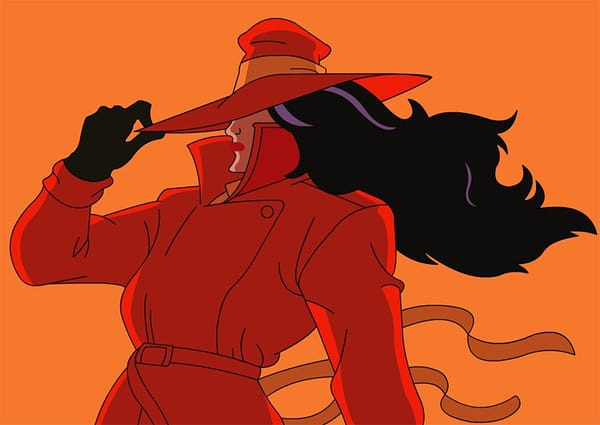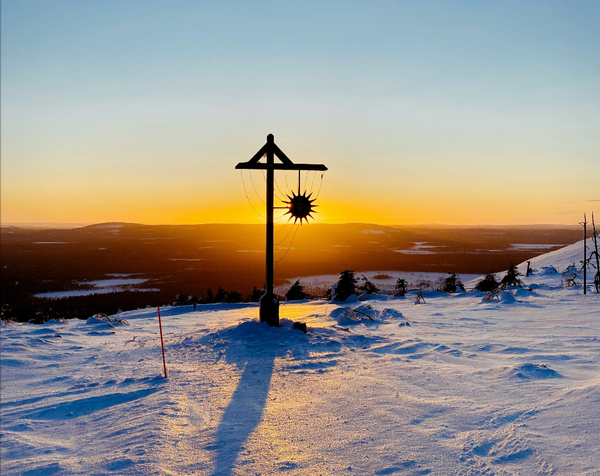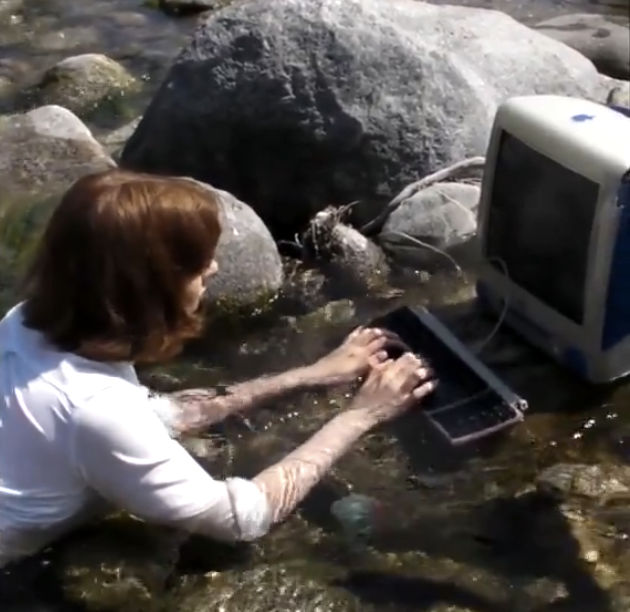How to Quit Anything and Become a New Person
Some lessons on processing endings and transitions
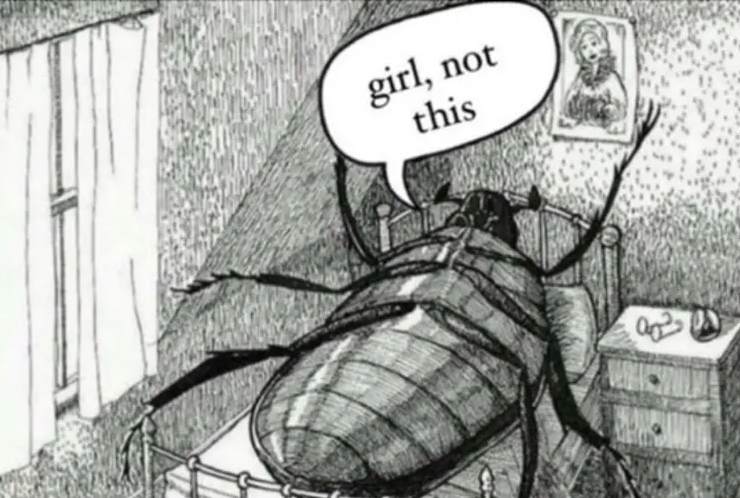
How to Quit Anything and Become a New Person
Last week, I resigned from my job as a Senior Audio Producer for The New York Times. For the past four years, working from Berlin, I’ve had the opportunity to make episodes of The Daily, report on the far right in Germany, cover culture news, and produce the series Animal, which explores themes of love, grief, death and of course, animals. With my resignation still fresh, I wanted to share what I’m learning about endings and how to stay present during challenging transitions.
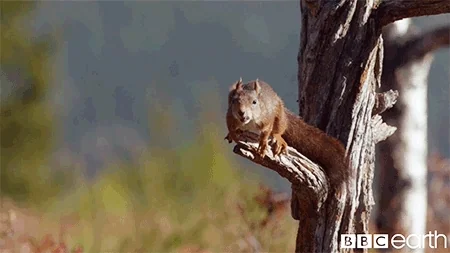
The Decision to Quit
My actual act of quitting happened in a single moment, but the decision had been brewing for months, in quiet moments of introspection. Initially, I tried to push these feelings away and felt ashamed that I couldn’t just be satisfied. I was living a life some people dream of: working at a top-tier organization, living abroad, and enjoying the privilege of financial stability. But deep down I knew the job wasn’t right for me anymore. My health was deteriorating, and the late nights keeping up with New York were impeding my social life. What I really wanted to do was close my laptop, go outside, and learn how to experience the world again. I had spent so much time indoors and behind a screen that I’d become disconnected from my own senses. On a walk, when a friend put a flower in front of my nose, I could barely smell it. My brushes with nature, both on the Animal podcast and with my own pets, hinted that my true calling was somewhere out there. To find it, I needed to make a radical shift in my life, one where my own healing, rest, and aspirations were the focus.
Answering this internal call was daunting. I didn’t want to walk away from stability or disrupt my life. But after ten years of helping others find themselves on podcasts, I knew it was time for me to tell new stories, including my own. In the end, one of the greatest lessons this job taught me was knowing when it’s time to walk away.
All endings are longer than the ending itself. There’s the beginning of the end (denial, fear, depression), the moment of separation, and then everything that comes after (lostness, grief, confusion but also creativity and exploration). This is really well represented in the William Bridges’ Transition Model — although transitions rarely look this linear. In the lead-up to quitting, I oscillated from confusion to numbness to denial and then back to confusion before deciding it was time to say goodbye.
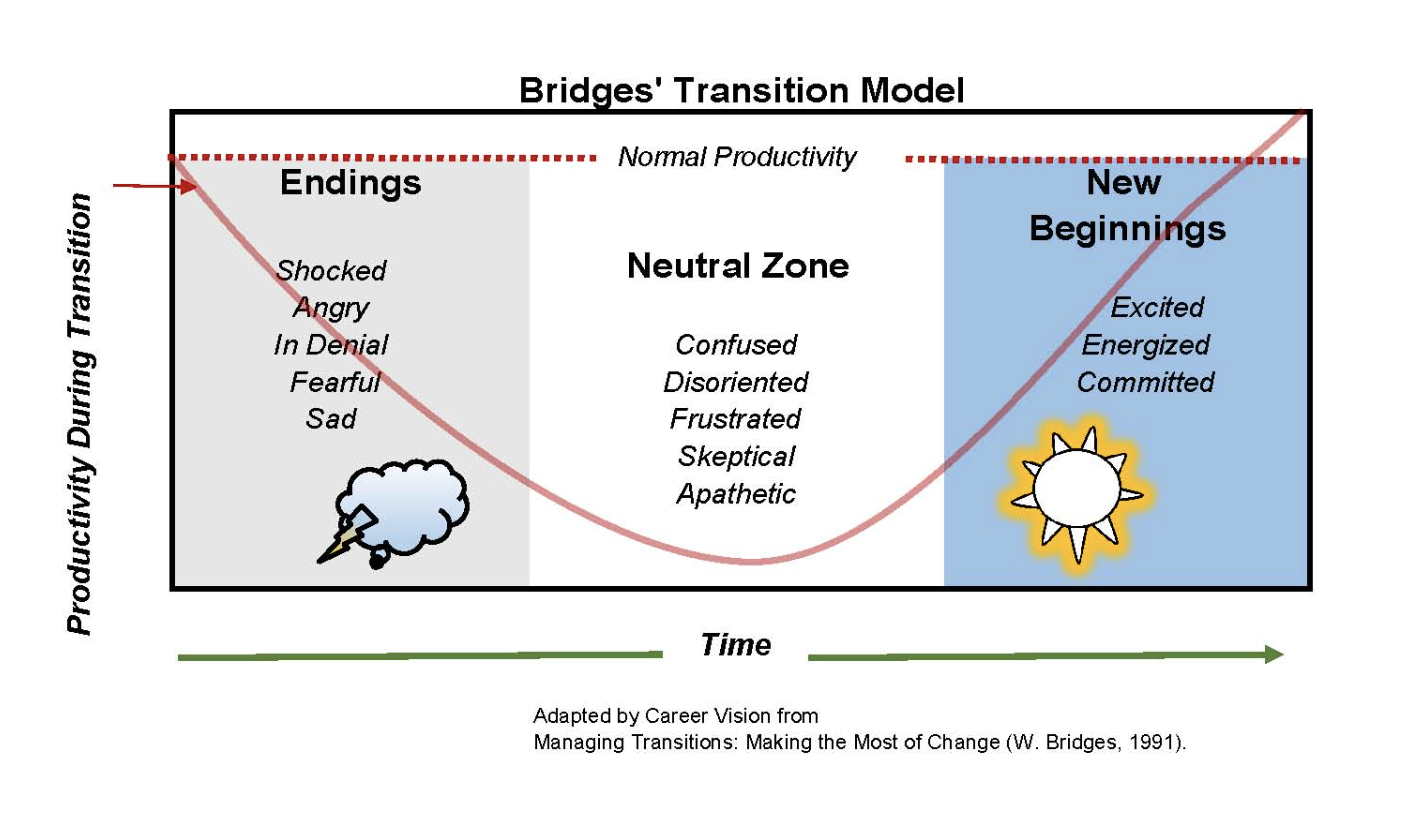
William Bridges Model for Transitions, c/o Career Vision
Finding Clarity
Three main things have been helping me through this ending, and I believe these strategies can be useful for navigating any transition, not just work-related ones.
- Solitude in nature: About a week before I quit, I spent some time alone in nature. By turning down the noise of my life as much as possible, I found it easier to make a clear-headed decision. As I’m still very much in my ending, spending time alone in nature continues to be an important part of my life.
- Connecting to my inner voice: I have many voices inside me, and not all of them are nice, but in a calm environment I can connect to the wise, steady inner voice. This voice – what the writer Elizabeth Gilbert calls the voice of Love – doesn’t give advice or quench my desperation to know what’s gonna happen next. But it does put me in a state of mind where I can see problems with a more calm perspective. Calmness is the way to creativity, and being calm is being visionary.
- Building a fund: Money is often the main factor that keeps people in situations that aren’t serving them anymore. I acknowledge that not everyone has the privilege to easily set aside funds – many have to prioritize providing for their families and others who depend on them. However, sometimes financial constraints can become an excuse for not taking the leap into the unknown. With the right planning and commitment, building a rainy day fund, even gradually, can provide the freedom needed to recalibrate your life. There’s a lot of information out there about how to grow your fund, and even if you never use it, just having one will empower you.
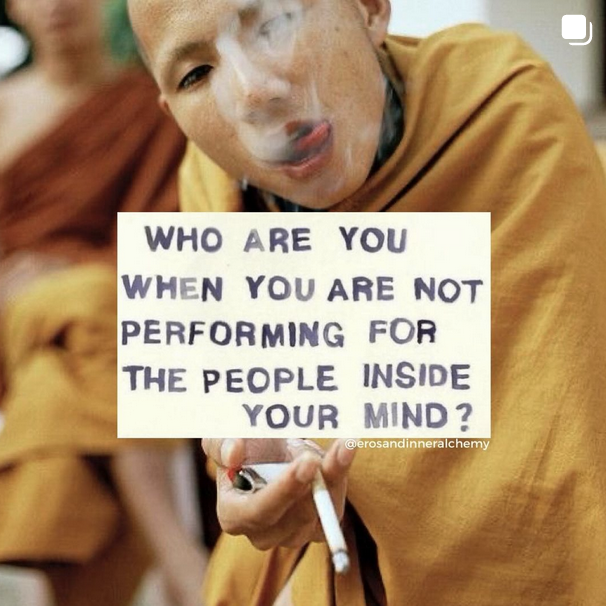
c/o Eros and Inner Alchemy
Challenging Societal Norms Around Quitting
Once I made the decision to quit, I had to tell everybody else, and in general, people get uncomfortable when you tell them you’re quitting something. They get even more uneasy when you don’t immediately have something else lined up. Society encourages us to make times of being uncertain and unmoored as brief and subdued as possible.
Luckily, there are more people challenging the way we think about endings, among them Holly Whitaker and Emily McDowell. Holly is the author of The New York Times bestselling book Quit Like A Woman and the founder Tempest, an organization that helps people quit drinking. Emily is the creator of Empathy Cards. Together, they host Quitted, a podcast about quitting everything from relationships to drugs to lying to work. What I love about the show is that Holly and Emily tell their stories in real time without the hindsight of neatly packaged lessons. The episodes show them making sense of and sometimes just existing in the space after one thing ends and before the next thing begins.
Last week I participated in the first in an ongoing workshop series they’re teaching called The End. One key takeaway for me was the idea that transitions are not something to rush. Instead, the workshop encouraged us to slow down and take stock of the gems that fallow periods can offer. Just like the earth, we humans also need seasons to go quiet and recharge for the next chapter of our lives. We do not always need to be producing or performing. We are allowed to have blank spaces. We are allowed to take rest.
In her book Rest is Resistance: A Manifesto, the artist and activist Tricia Hersey writes that, “Rest is a form of resistance because it disrupts and pushes back against capitalism and white supremacy.” Most of us are conditioned to be ashamed of our fallow periods because they don’t benefit the systems we live under. As Hersey writes, “Our constant labor becomes a prison that allows us to be disembodied. We become easy for the systems to manipulate, disconnected from our power as divine beings and hopeless. We forget how to dream.” Restoring our hopes and dreams requires us to take pauses. These periods of rest not only allow us to heal but also offer direction and clarity. It is only from a restful place that we can best hear the steady voice inside guiding our next steps.
In the last few weeks, I haven’t had the answers that most people want to hear when they ask me what’s next. I don’t have a job lined up. I don’t have a big trip planned. I don’t even know what I’m doing next week. I don’t know what the future holds, and for the first time, I feel okay with the discomfort.
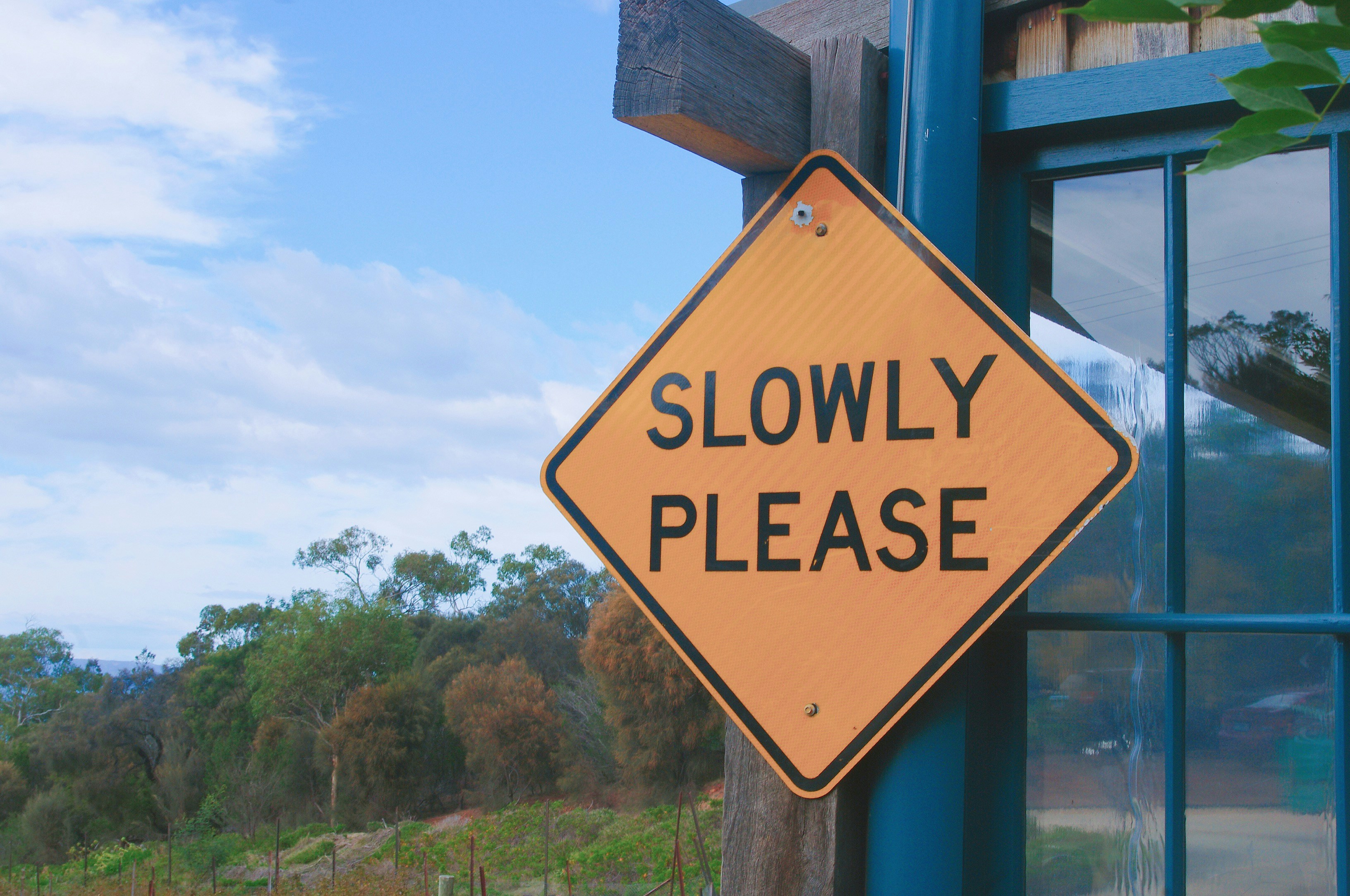
c/o Rainy Wong via Unsplash
Moving Forward and Becoming Someone New
Just as I started to settle into my new reality, life gave me another surprise. I’m writing these words from bed, where since day one of unemployment, I’ve been recovering from COVID. The winds of change have my number, and I’m getting the message that it’s time to take care of my health. So that’s what I’ll be doing for the foreseeable future: resting and being present (or at least, trying my best).
Here’s what that looks like: It’s a breezy July night. Through my bedroom window, I can smell cigarette smoke from downstairs where grown men are yelling at a television that’s been set up outside the pizza shop. Germany has just been defeated by Spain in the Euros.
I’m not a football fan, but I appreciate the communal spirit, which takes me back to an unexpected encounter I had early on in my season of change.
I was waiting on the platform for a delayed train when this guy sat down on the bench next to me. In every way, he was my opposite: jolly, heavyset, drunk, and a football fan. When he started humming some regional victory tune, I decided it was time to take out my noise-canceling headphones.
But before I could put them on, the guy waved a hand in front of my face.
“Is this yours?” He pointed at a cell phone on the seat between us. It was a new model in one of those indestructible cases that can survive everything except being stolen.
I shook my head and returned to my headphones.
“Well what do you think we should do?”
We? I didn’t want to be involved. I wanted to disappear into my world, where I could ruminate about my plans for the future and probably check Slack again, even though I’d already logged off for the day.
“This is your problem now, too.” He said, like he could read my mind.
I could have shrugged him off. I could have gone to the other end of the platform, but something about the footballer’s genuine concern and the way he asked for my guidance pulled me into the present.
We discussed the pros and cons of taking the phone to the main station’s lost and found. Neither of us wanted to track down the office, which was probably already closed by this time of night.
“We could hide it.” I pointed to a spot behind the bench, where the phone would blend into the wall but still be findable if the owner came back to look.
“Yeah?” The footballer checked all around to make sure no one was watching. Then he set the phone behind the bench and shrugged, as if to say, “What else can we do?” We hoped someone would show up.
When the train pulled up, we took our time standing from the bench, still guarding the spot. We were the last in the crowd to board, even though we’d been some of the first people on the platform. And then, at the last second, as we were about to step through the doors, a couple rushed over, looking frantic
“Have you seen a phone?” one said, and the footballer grinned, like he was watching a buzzer-beater save.
“There! there!” We pointed out the hiding spot as the train doors closed.
We watched the couple from the window. We saw them hug and the footballer pumped his fist.
We retold the story to each other like we were remembering a great sports play. The hiding spot. The train pulling in. The couple arriving right on time. And then just as quickly, the train arrived at the footballer’s stop. The doors opened to inhale smoke and spit out commuters. And like that, he was gone.
The adrenaline rush of this moment happened during an otherwise boring transition, but by making the most of our waiting time, we created a small victory. It was a vivid lesson in the magic that comes from aligning with the natural flow and staying open to the world. It was also a reminder that sometimes the most powerful thing you can do during transitions is find a way to take the focus off yourself. Maybe the best approach when we’re waiting for the next train or job or relationship is to stop obsessing over our own timing and get into the habit of being in service to others. This can literally mean volunteering but it can also mean being present as a form of service – noticing the world around you and being awake to moments as they unfold.
By staying present, we might find that transitions aren’t just voids to rush through but essential experiences toward becoming the versions of ourselves we’re meant to be.
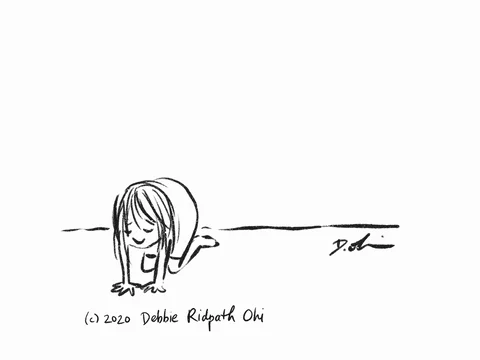
c/o Debbie Ridpath Ohi
